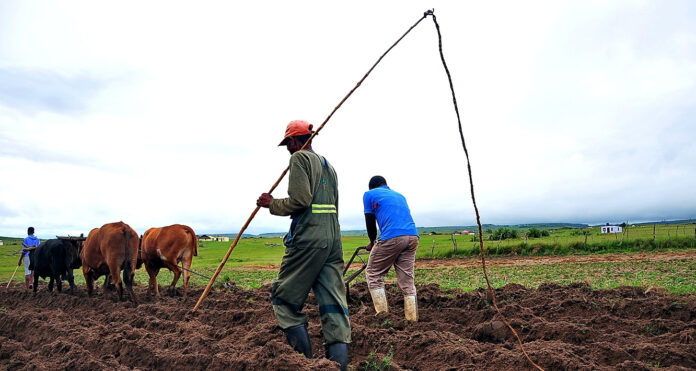“The blacks cannot make good economic use of the land,” testified the whites from the Orange Free State during the Native Land Act Commission hearings. They made false submissions while contrary evidence showed that blacks were engaged in land-related economic activities; however, the commission upheld the submission of the whites.
The Natives Land Act originates from a motion tabled by JG Keyter, seconded by his fellow OFS member. The bill aimed to prohibit black people from squatting on a Free State farmer’s land.
The problems also stemmed from the poisonous mind of a PG Grobler from the Transvaal, who amended the motion to add: “To take further steps to restrict the purchase and lease of land by Natives,” writes the eyewitness and son of the soil, Sol Plaatjie.
To date, a life-changing law premised on lies has become the order of the day.
On Thursday, June 19, 1913, the Union government promulgated the Natives Land Act, No 27 of 1913. The act prohibited natives from purchasing, leasing, or making any other land arrangements outside of lands specifically reserved for Africans. Since then, landlessness has engendered destitution for millions of African lives.
This was followed by other destructive laws, including the Group Areas Act of 1950. These were the original sins. The objectives of all these land laws were to establish a master-slave relationship with the land for blacks.
In January this year, President Cyril Ramaphosa assented to the Expropriation Bill, signing the Expropriation Act 13 of 2025. Summarily, the act was intended to provide for the expropriation of property for a public purpose or in the public interest.
This exposed the public to divergent interpretations of the act. Different political representatives offered their understanding of the act. Indeed, South African problems are too political; the majority understood the act to mean expropriation of land without compensation, while the act mainly addresses activities under the Department of Public Works and Infrastructure.
However, it was the beneficiaries of the Native Land Act who were most riled by the Expropriation Act and threatened to challenge the new legislation all the way to the apex court. They went to the US to smear the South African government for passing racially discriminatory laws and spiced their tall tales with false claims of a white genocide.
Subsequently, Ramaphosa had to go to the Oval Office and explain why South Africa is enacting laws that are uncomfortable for the white population.
Those opposed to change in land ownership patterns in our country have appointed themselves experts on what is suitable for black people, and land is apparently not among the property accessible to black people.
They have a troubling history of spreading lies for their own benefit regarding black people in this country. Since 1913, when they claimed that black people couldn’t make good economic use of the land, it was justified to take their lands.
In February 2018, the National Assembly debated a motion tabled by the EFF to amend section 25 of the Constitution to allow for the expropriation of land without compensation. The white segment of the population was irked again. They pulled the “Zimbabwe card”, and lies circulated again that if South Africa expropriated land without compensation, the country would become like the failed state of Zimbabwe.
They imply that as long as land ends up in the hands of black people, land-related economic sectors will collapse.
But the future of this country heavily relies on restorative justice, including restitution of some of the land currently held by minority whites. The peace and future of South Africa rely significantly on how land reform politics involving both white and black communities are managed. The dichotomy is that both groups’ futures depend on land.
The stubborn racial hatred in our country points in one direction: the land. The haves, however, have built their economic future on the destitution of black people. They have an opportunity to build a future if they are willing to engage in a peaceful, progressive discussion on land exchange between blacks and whites.
If land remains in the hands of one group, it means only that group has an economic future here. Then, conflict is inevitable as long as whites resist relinquishing control over the land.
A meaningful and sober debate on land reform in South Africa should feature on the agenda of the National Dialogue.
We have ignored it for far too long, and the continuous postponement of it is a self-betrayal. Let sober minds gather and lead the way. The failures of the land reform programme over the past 30 years should not justify the silencing of the debate.
• Simion Mashego is an independent researcher and land reform activist




